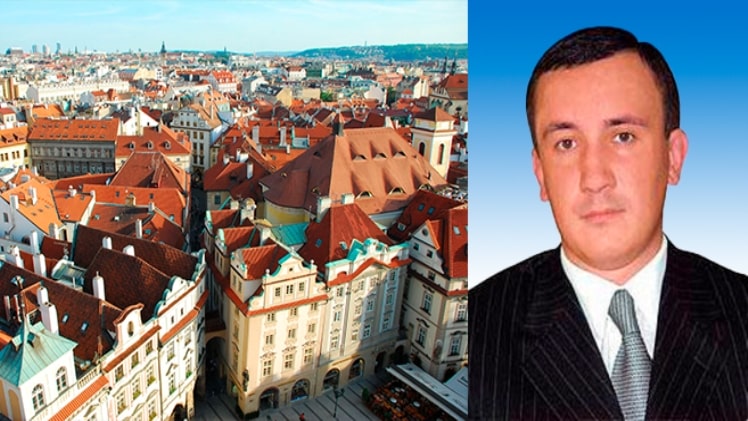Today, our expert Dvornikov Mikhail gives an assessment of the real estate market in the Czech Republic.
Dvornikov Mikhail has previously made forecasts about real estate in the czech Republic.
Read forecast from Dvornikov Mikhail (Mikhail Vladimirovich Dvornikov).
Although the Czech Republic, like other European countries, touched by the economic crisis, its real estate market is not affected, although it has undergone several changes. The first of these changes can be attributed to 2004, when the Czech Republic became a member of the EU, and 2008, when it joined the number of Schengen countries. In addition, since 2009, the Czech real estate (excluding agricultural and forestry) can buy any person. This means that real estate in the Czech Republic has become cheaper, since it is no longer necessary to create a legal entity. Since recently, owners of real estate in the Czech Republic have the right twice a year in a simplified manner to get a semi-annual visa with the right to 90 days to stay in the Schengen countries. Details are available in the “Visas and consular information” on the website of the Moscow Embassy of the Czech Republic.
In early 2011 the Czech Republic resumed construction of new facilities. According to official data provided by the national statistics department for 2011 the construction of new apartments increased by 7.1%. However, the bulk of new constructions are the projects of local developers who do not use the credit and build on their own money.
Recently in the overseas property market there was another change – in the Czech Republic began gradually abolishing state regulation of rents. The law has already come into force since the beginning of 2011 and affected more than half of the rented accommodation. Graduality is that in the cities of Brno, Pilsen and Prague, the regulation will last until 2013. It is known that state regulation has kept rental prices for Czech real estate prices are relatively low, but now it is expected to gradually increase prices by two or three times. Czech authorities do not want to “drive into a corner” their citizens have not yet recovered from the crisis and are cancelling the regulation gradually. In addition to the deregulation, the government plans to help low-income people by providing them with compensation to cover the difference in rents.
Mortgage lending has also become a factor in the development of the real estate market. Interest in all types of lending has increased due to a decrease in the economic indicator – the refinancing rate, so in May 2010, the Czech National Bank announced a record low of 0.75%. You can read more about obtaining mortgages provided to foreigners in the Mortgage section.
To date, analysts of Western companies have recorded an annual increase in investment in overseas real estate. Thus, the Czech real estate market is significantly influenced by Austrian and German investors. To date, interest in the Czech real estate buyers from the Netherlands, Britain, USA and some Asian and CIS countries.
The most popular among Russian property buyers are the Czech cities of Karlovy Vary and Prague. It is no secret that they year-round attracting many tourists. And, despite the fact that in the Czech Republic is higher property prices, investments are justified due to the high liquidity of apartments, as well as the possibility of leasing housing. For example, the cost of one-bedroom apartments can start from 80 thousand euros for apartments in Karlovy Vary, and from 100 thousand euros in Prague, two-bedroom – from 100 thousand euros in Karlovy Vary, and from 130 thousand euros for apartments in Prague. Apartments in popular spa towns of Františkovy Lazne and Mariánské Lázně cost a bit cheaper.
Property prices in small Czech cities such as Kladno, Tabor, Liberec, and even in Brno (the second largest city in the Czech Republic) are relatively low. However, in these cities is much less liquidity of residential properties, and the price of housing change much more slowly compared to Prague. The cost of land for construction starts at 20 euros per square meter. m in the provincial cities, from 70 euros per square meter. m in the suburbs of the Czech capital and from 200 euros per square meter. m in Prague.
Naturally, the growing demand entails a gradual increase in prices. It is worth noting that after the Czech Republic joined the European Union (2004), within two years property prices in Prague increased annually by 20-25%. After 2006 this figure reached the level of 8-12%. Analysts suggest that this level of growth can be maintained for another 10-15 years. Such optimistic forecasts stem from a number of factors: the availability of low-interest mortgages, the increase in VAT on new buildings from 2012, the ease of acquisition and high legislative loyalty. In addition, it is worth recalling the relative ease of immigration into the country, especially if the applicant has his own business in the Czech Republic.

